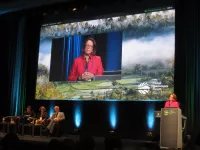Within two generations our entire energy system needs to be carbon free for the world to avoid dangerous impacts of climate change. This transformation needs to happen first in developed countries then in all countries soon afterwards. With the majority of the world’s population residing in urban areas releasing more than 70% of global greenhouse gas emissions, the necessity for cities to take centre stage in addressing climate change is without doubt. Cities are often hotspots of climate vulnerability, hosting masses of marginalised and poor people that have little to resist floods, cyclones, and storms. Experts often talk about the need for an urban transformation towards low carbon and climate resilient development. In practical terms, such a transformation requires a significant makeover and adjustment of urban structures, its organisation, and its residents’ lifestyles.








